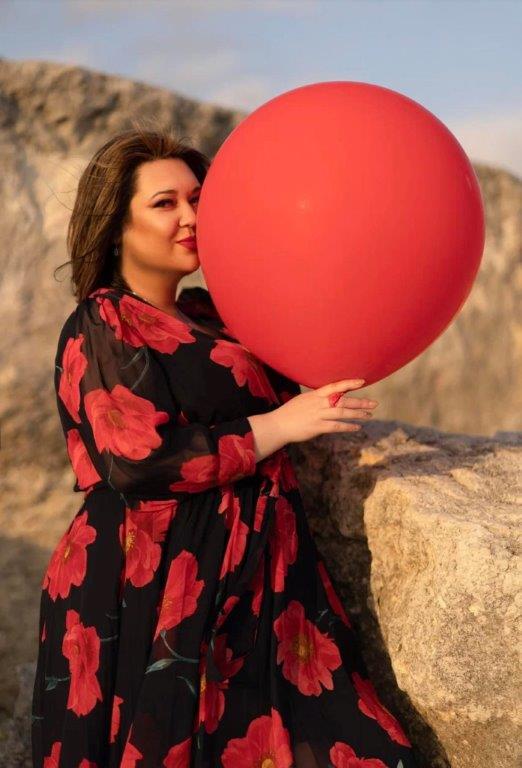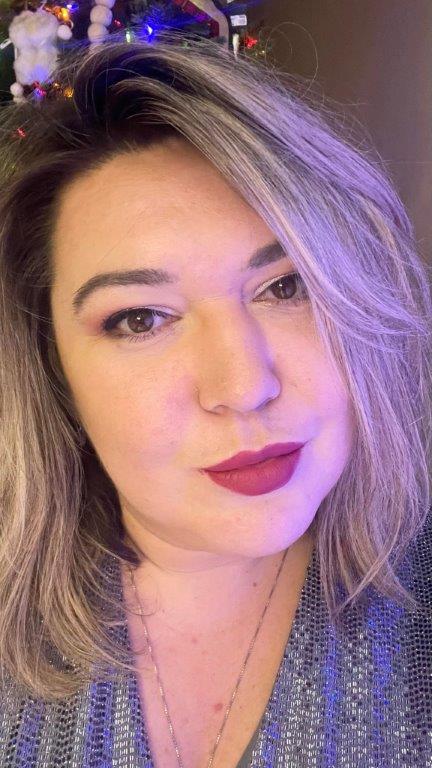
– Tell us, please, how did you end up in America?
We arrived in 2000. My parents won a green card. We came from Ukraine, but I was born in Norilsk, Russia. I was fifteen at the time. In Ukraine, I was the president of the school and the organizer of all kinds of events, but when I arrived here, it wasn’t easy. We did not know the language, and there was no Google translator or other devices. We had to go everywhere with a dictionary and find out what each word meant. We had no one here, no relatives, no friends. My brother was thirteen, and we talked to each other.
We arrived in Michigan, and there was not a single Russian speaker at the school where I studied. So I had to learn English very quickly.
– Tell us a little about your parents. What did they do in Ukraine and here?
My parents worked at heating stations, so when we came to America, where there were no such stations, it was not easy to find a job. They took on any job, cleaned offices, and worked in factories; they had to feed our family. So I also started to work at the age of 15.

– What do you do now?
In October of last year, I opened my own company. And before that, I studied marketing, worked in the Chicago events field, worked for companies, and organized various shows. Then I moved into sales in marketing, worked at Google and Dell, and then I got my team. I also spent a lot of time working with Russian speaking which came here and wanted to develop their business, but it didn’t work out for them. Someone had a bankruptcy, and someone just closed. I tried to understand why. I looked at it both from the marketing and production sides.
To some extent, I still do this. I am always happy to help people who are trying to organize their businesses here. I did counseling not only in Texas but all over America.
– Could you share your conclusions about why this business did not go on American marketing for many who brought their business here, their company?
Mentality. The Americans’ approach is different from that of the Europeans. 95% of success depends on the company’s founder or CEO. Many people told me: “Why don’t people buy our product? Why isn’t it a success? It was a very successful business where we came from?” I had to answer that only very large companies, such as Apple, sell the product now without any image promotions. In all other cases, people must believe in you and believe in your company. Only then will they begin to be interested in or buy what you offer them. That is why the first person in the company should be engaged in networking and only then invest in marketing and expect that money will return.
– So you would like to work in this area further?
No, marketing and sales are very interesting, but I have always wanted to do something creative. I loved doing birthday parties. When I did trade shows, I did it entirely from scratch. And here was just such a situation; many fell under layoffs, and so did I. At first, there was a shock. I did not have a job for the first time in the last 15 years. That’s why I decided to open my company (MMM Decor and Events), to learn from the mistakes of others. So far, everything has been successful. Everything is already scheduled for six months, and I have customers. And most importantly, it is creative work. We arrange events: birthdays, weddings, graduations, and so on.

– How did you end up in Austin?
We came to Michigan, where I graduated from high school. Then I went to Chicago, my parents did not know about it, to fill out applications for admission to the university. I studied there and started working. Later we moved to Los Angeles, then to Silicon Valley. There we opened a startup, which we have already sold. We had a small room in Silicon Valley for which we paid 25,000 a month. I told the company’s CEO that there is such a state of Texas and the city of Austin, about which I know nothing, but all small companies move there. So I offered to move too. Only five people were in our company, and we all moved together. Then our company grew to 400 people (truck industry, navigation systems). Later this company was also sold. However, we remained in Austin and did not want to move elsewhere.
The city is growing. When we arrived here, there were 13 Russian-speaking families, and everyone knew each other, and recently I went to meet people from Ukraine and saw how many new Russian-speaking people there were.
Austin has great opportunities for businesses, large and small.
– What difficulties did you have to face here?
For more than 20 years, there have been a lot of these difficulties. When people ask me how I know this or that, I say it because I had to go through it. Everything had to be done from scratch, from meeting friends to furnishing a house. Then, when you move to another state, you do it all over again.
– The difference in mentality remains a difficulty for you?
I have to switch. I have Russian-speaking friends, and also Americans, and very few people who are part of both companies. When I am with Russian-speaking people, I understand that my mentality is no longer Russian. When I am with the Americans, I understand that my mentality is not yet American. So I have to find a balance. Still, the mentality of the Americans is closer to me; the position that I need to go and do rather than sit and wait is closer to me.
– Do you keep in touch with Motherland? Do you visit Ukraine?
I was in Ukraine in 2018 after a 15-year break. It was a shock. Although I know the language, I can speak Ukrainian, but I understand how Americans feel when they come there. I’m not used to the fact that someone can cross the road in front of you, people stand too close in line, someone breathes down your neck, and they swear on buses.
We communicate with relatives, of course.
– Have any traditions remained from there in your American life?
Yes, we have. I was married to a Russian speaking, and we celebrated Christmas on the 25th, as they do in America. Now I’m dating an American, and I didn’t want Christmas the 25th to be the only holiday. So, therefore, we celebrate Christmas twice, on December 25 and January 7. For the last five years, we have been inviting Americans or Europeans of another religion to our Christmas, on the evening of January 6, preparing a table in our traditions, preparing kutya, 12 dishes, and I explain where this tradition came from. I also tell them why we celebrate Christmas on a different day. And I really like it.

– What do you do outside of work?
I don’t have much free time, but I like to travel if I have it. I’ve been to thirty-five states. I like to see how people live in other countries and states. I have always been surprised by people who live in one place for a long time and cannot even travel to a neighboring state.
– Do you have a hobby?
My hobby used to be work, which has now become my company. People often ask me for advice, and I always willingly help them. Now is a great time to develop a small business. I like to meet interesting people, find out what’s new in the marketing field, etc. When Russian speaking comes, I help them with business and useful information.
– What are your favorite books and movies?
I don’t read books. I love watching movies and try to watch a new movie every month. There is a group on Facebook where we discuss films afterward. This month it was Avatar and 25 years of the Titanic.
One of my favorite movies is the movie with Will Smith, The Pursuit of Happiness. The film, in which he starred with his son, is based on a true story. This film is about the fact that if you want to achieve something, you will do everything for it. So when I meet people who say we need to do this and that and do nothing, I advise them to watch this movie.
– What does Austin lack, in your opinion?
Community. There are many Russian speaking, and there are different circles, but there is no support that I saw in other states. People meet in groups and do not interact. I don’t know how to change it. We organized events several times, but no one came. People know each other, but when they need to appear, they don’t . Of more than 200 invitees, five people came to our events.
– Is there anything else you would like to tell about yourself?
It’s probably not about myself. A lot of people who just come here do not know the laws. I am not a lawyer, but I often had to answer some legal questions. Young girls who are married to Americans do not know their rights. There was a case when a girl was beaten by her husband, and she did nothing, fearing that she would be deported. She did not know that even if they lived together, rented an apartment together, had the same bank account, and claimed domestic violence; the law was on her side, and she would not lose anything. No need to be silent; you need to share your problems with someone.
– What would you like to wish Russian speaking in Austin?
Communicate more! Share your successes and problems, and don’t be afraid to ask for help. If someone helped you when you arrived here, do the same for those who arrive now. If you cannot help physically or financially, help with advice. The new ones come here, and sometimes they don’t know where to buy milk and eggs; someone told them about “Whole Foods” and they buy there, but there is also “HEB”, tell them about it. Just help each other!
Contact information:
Facebook: facebook.com/maria.melnyk
